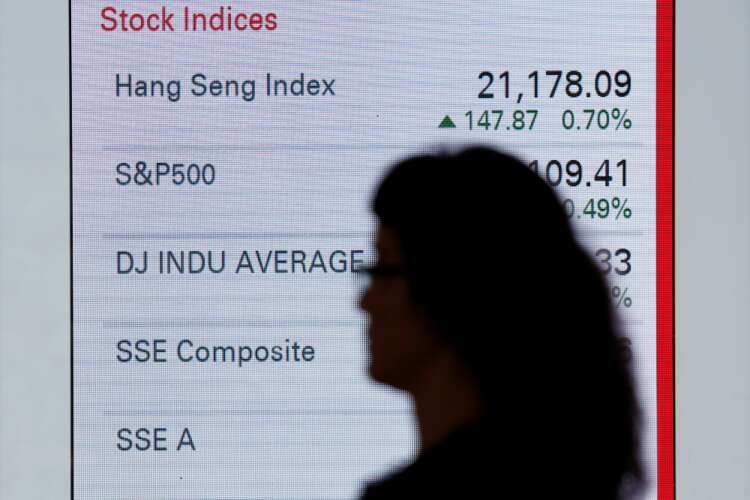Exclusive-Bowing to investor demand, funds ramp up ex- China emerging market strategies
Published by Jessica Weisman-Pitts
Posted on October 31, 2022
4 min readLast updated: February 3, 2026

Published by Jessica Weisman-Pitts
Posted on October 31, 2022
4 min readLast updated: February 3, 2026

By Xie Yu and Samuel Shen
HONG KONG/SHANGHAI (Reuters) – Money managers are launching emerging market or Asia products with no exposure to China to meet increasing demand for such strategies from global investors wary of rising policy and geopolitical risks in the world’s second biggest economy.
Chinese equities make up 31% of the MSCI Emerging Market index, a popular stock index that many funds track and benchmark their performances against.
With Chinese equities floundering over the past two years due to a government crackdown on its technology sector, a real estate liquidity crisis, and rising U.S.-China tensions, broad emerging market funds have seen their returns eroded, resulting in investors clamouring for carving out their exposure to the world’s biggest emerging market.
Matthews Asia, a U.S. based asset manager that specialises in Asian investments and manages more than $14 billion, is among the latest to have launched a new product with an Asia ex-China strategy, say two sources familiar with the matter who asked to stay unnamed as they are not authorised to speak to media.
Matthews Asia did not respond to Reuters queries.
Fund industry sources said this approach is gaining ground.
“Given China takes a heavy weight in the indices and to mitigate risks from the Chinese market”, some funds are starting to introduce products targeting these markets but excluding exposure to China, Haitong International Securities Group Ltd, a state-backed securities firm based in Hong Kong, said in a memo issued last week and reviewed by Reuters.
Two investment managers with long-only strategies based in the United States have started issuance of such products, it said.
Haitong noted that foreign investors were concerned with heightened Sino-U.S. geopolitical tensions and how that would affect Taiwan, and the sanctions imposed by the U.S. government on China, mainly its semiconductor and biomedical industries.
Fund research firm Morningstar tracks nine new emerging market ex-China equity mutual funds and exchange-traded funds (ETFs) that were created this year, matching the number of launches in total over the previous two years.
The latest ones include funds issued by Goldman Sachs Asset Management, WisdomTree Investments and RBC Global Asset Management. Abrdn and Invesco have refashioned existing products into ex-China funds.
Rob Brewis, a portfolio manager at UK-based asset manager Aubrey Capital Management Ltd, said the firm had seen growing calls over the past year from American investors to remove China from its emerging market portfolio, alongside the rising tensions and restrictions being imposed on investing in China.
“We are starting to see requests from UK investors this month,” he said.
If Aubrey was to remove China from its emerging market strategy, the Indian market would take a significant portion, while the rest will be spread around other countries including Vietnam, Brazil and Mexico, he said.
OUTFLOWS
Andrew McCaffery, Fidelity International’s global chief investment officer, said they have received increased requests from clients for emerging markets excluding China strategies, although the purpose was to “break China out as an allocation separately within global portfolios”.
Flows and portfolio data bear testimony to investor disenchantment with Chinese markets.
China-only ETFs have seen outflows recently, with October set to be the third straight month of outflows, whereas Asia equity ETFs have received inflows in most months this year, Refinitiv Lipper data shows.
Fund filings from 280 active emerging market strategies show their weight for Chinese and Hong Kong equities peaked at the end of October 2020, right before China started sweeping crackdowns on new economy companies, including fintech giant Ant Group.
After a brief blip higher in mid-2022, allocations are towards the lower end of the three-year range, said Steven Holden, director and founder of Copley Fund Research.
“With the recent price movements, expect those weights to be much lower,” he said.
Goldman Sachs, in a report issued on Friday, estimated that $100 billion to $200 billion of foreign holdings could be at risk if global funds cut their allocation to Chinese equities meaningfully, while global active funds have sold around $30 billion in Chinese equities over the past year.
Fidelity’s McCaffery said significant further underweighting of China is unlikely, given its global importance and as the country looks to stabilise externally and internally after President Xi Jinping secured a third term this month.
“The challenge is that they (global investors) are not going to be quick to add back in,” he said.
(Reporting by Xie Yu and Samuel Shen; Additional reporting by Gaurav Dogra in Bengaluru; Editing by Vidya Ranganathan and Muralikumar Anantharaman)
An emerging market is a country that has some characteristics of a developed market but does not meet all the standards to be considered a developed market. These countries typically experience rapid economic growth and industrialization.
Equity refers to the ownership of shares in a company. It represents the value of ownership interest in the business, which can increase or decrease based on the company's performance.
Foreign investors are individuals or institutions that invest in assets or businesses located in a country other than their own. They seek opportunities for profit and diversification.
An investment manager is a professional or firm responsible for managing investment portfolios on behalf of clients. They make decisions about asset allocation and investment strategies to achieve financial goals.
A mutual fund is an investment vehicle that pools money from multiple investors to purchase a diversified portfolio of stocks, bonds, or other securities. It allows investors to access a broader range of investments.
Explore more articles in the Investing category











